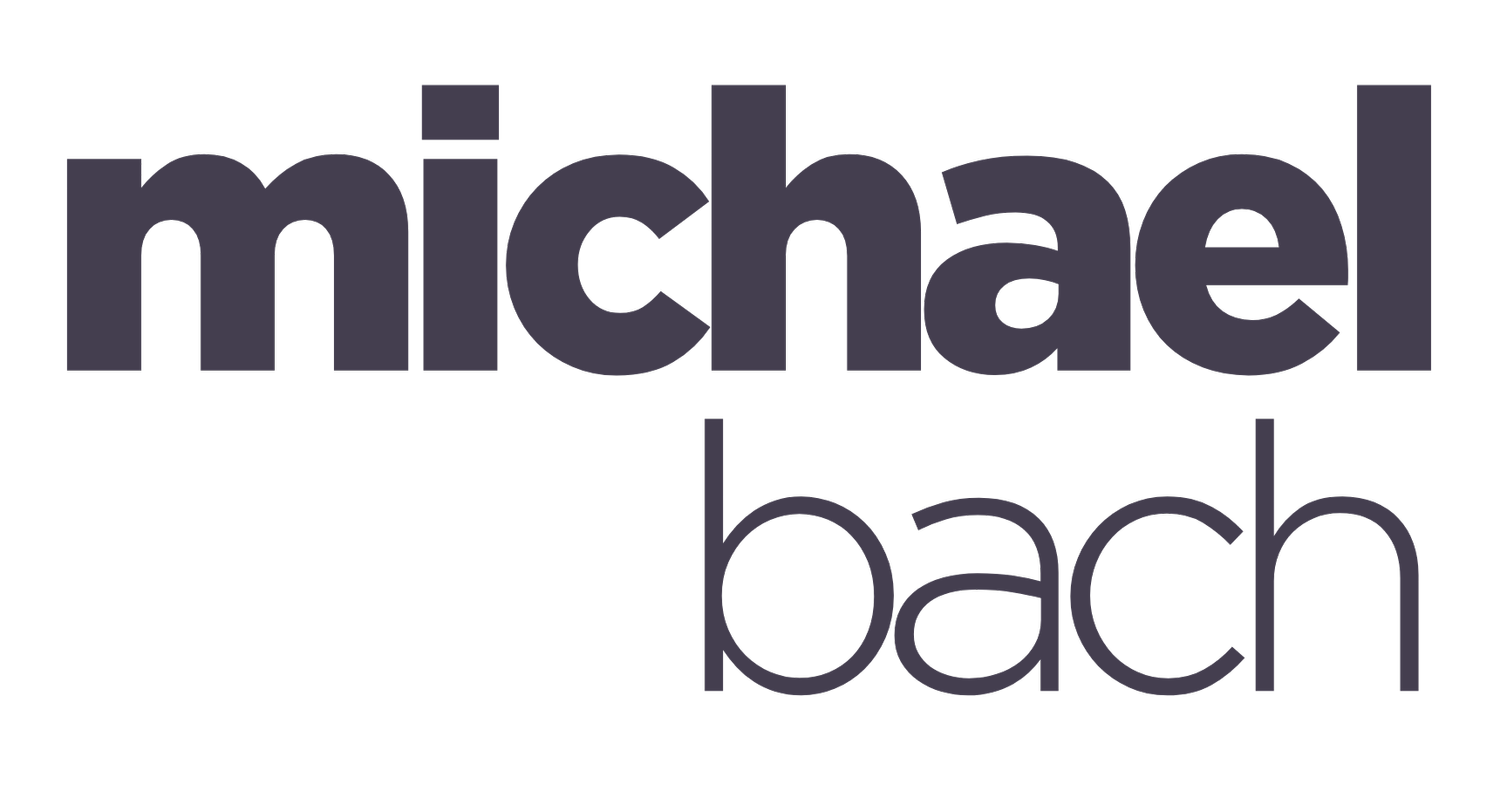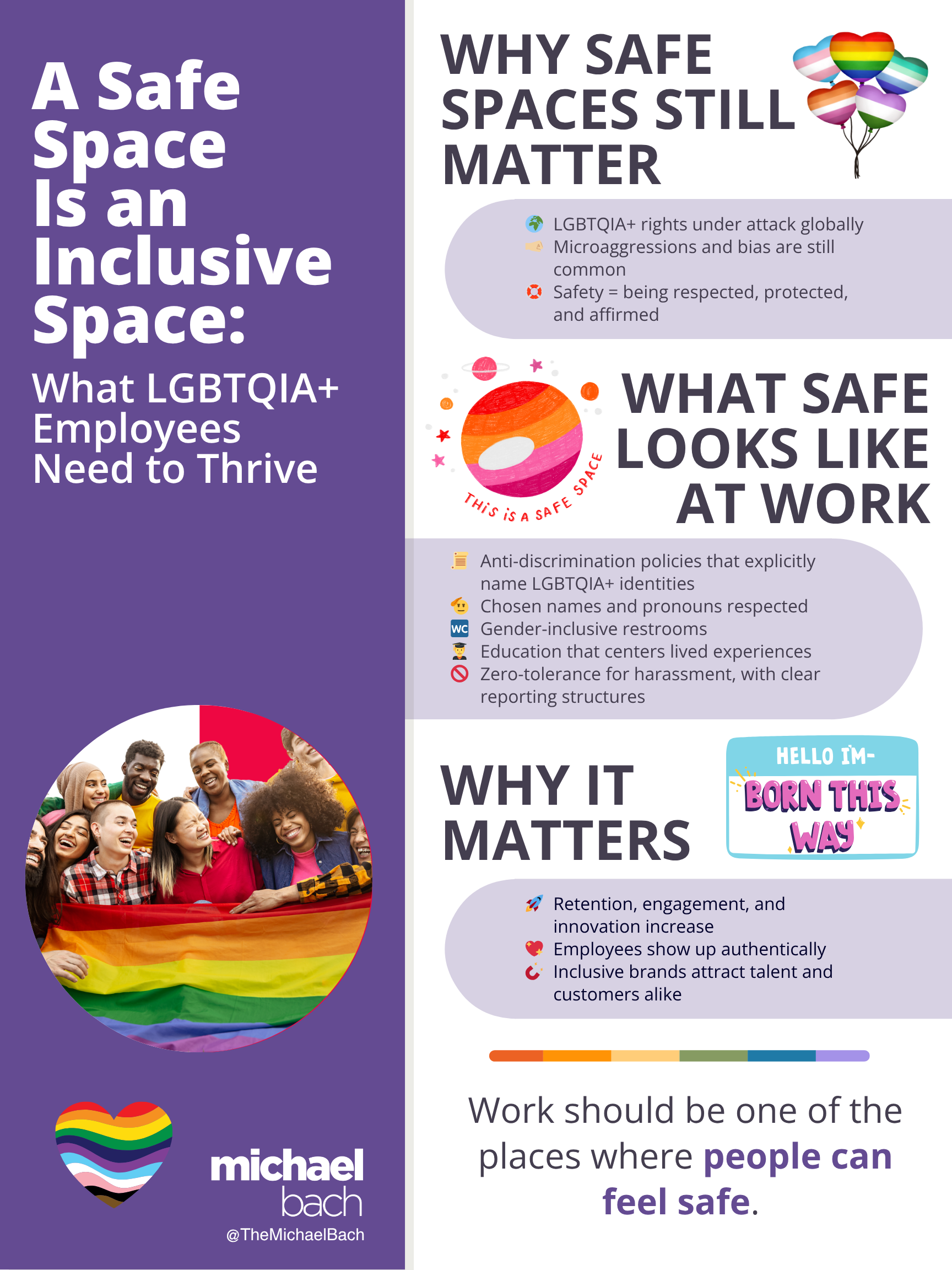🏳️🌈 If It’s Not Safe, It’s Not Inclusive: Why Safe Spaces Matter for LGBTQIA+ People at Work
Let’s start with a hard truth: not everyone feels safe at work. And if you're not actively creating a safe space, you're probably contributing to an unsafe one.
That’s especially true for LGBTQIA+ employees—many of whom are still navigating workplaces where silence isn’t just awkward, it’s dangerous.
If your inclusion efforts don’t start with safety, they’re not working. Because when people don’t feel safe, they can’t bring their full selves to the table—and that costs in many ways.
🧠 What Do We Mean by “Safe Space”?
A safe space isn’t about bubble-wrapping people or stifling free speech. It’s about creating a workplace where individuals—especially those from traditionally marginalized communities—can exist without fear of harassment, discrimination, or harm.
For LGBTQIA+ folks, safety means being able to:
Use their correct name and pronouns
Share who they are without fear of being fired, gossiped about, or “othered”
Bring their partners to events
Access gender-affirming healthcare and facilities
Navigate their careers without homophobic, biphobic or transphobic barriers
This isn’t special treatment. It’s the baseline of dignity.
🌍 The Reality Outside the Office
Globally, being LGBTQIA+ is still criminalized in over 60 countries. In twelve of those, it’s punishable by death. That’s not ancient history—it’s right now.
Closer to home, homophobia, biphobia, and transphobia are alive and well. Hate crimes are rising. Laws are being passed that target LGBTQIA+ people under the guise of “protection.” And in many places, coming out can still cost someone their job, their safety, or their life.
So no—it’s not “just a phase.” And no, we’re not “past that.” Safe spaces still matter. Urgently.
🏢 Why It Matters at Work
Work should be one of the places where people can feel safe. And yet, for too many LGBTQIA+ employees, it’s a minefield of microaggressions, assumptions, and “jokes” that aren’t funny.
When people feel unsafe, they:
Self-censor
Code-switch
Hide who they are
Burn out faster
Leave
That doesn’t just hurt individuals. It hurts your entire organization.
💼 Safe Spaces = Smart Strategy
Here’s what safe spaces do for your business:
✅ Increase employee retention
✅ Boost engagement and productivity
✅ Foster innovation through diverse perspectives
✅ Build a brand people trust
Inclusion isn’t just about who’s at the table—it’s about who feels safe enough to speak.
🛠️ What Creating a Safe Space Looks Like
Let’s make this practical. Creating a truly safe space requires action, not just rainbow logos in June.
Here’s where to start:
🌈 Policy & Protection
Ensure your anti-discrimination policies explicitly include sexual orientation, gender identity, and gender expression. Make them more than just words on paper.
📣 Representation & Visibility
Include LGBTQIA+ voices in leadership, hiring panels, and storytelling. Not just during Pride. All year, every year.
🧠 Education & Training
Make training about more than checking boxes. Cover language, allyship, unconscious bias, and lived experiences.
🚻 Facilities & Forms
Offer gender-neutral washrooms. Use inclusive language on forms (not just “Mr./Mrs.” and “Male/Female”).
🎤 Speak Up Culture
Create an environment where people feel safe reporting harm—and where harm is addressed, not ignored.
💬 Leadership Accountability
Safe space starts at the top. Leaders need to model inclusive behavior, not just promote it.
💥 The Bottom Line
If your LGBTQIA+ employees don’t feel safe, they won’t stick around. They’ll disengage. They’ll protect themselves the only way they can: by disappearing.
But when they do feel safe: they show up. They lead. They create. They transform your culture.
Safe spaces aren’t a luxury. They’re a responsibility. And if you're not actively building them, you're passively allowing harm.
So ask yourself:
Does your workplace look inclusive? Or does it feel inclusive?
There’s a difference. And it starts with safety.
Learn more about Michael’s speaking topic, Safety in Numbers: Ensuring your Space is a Safe Space.

